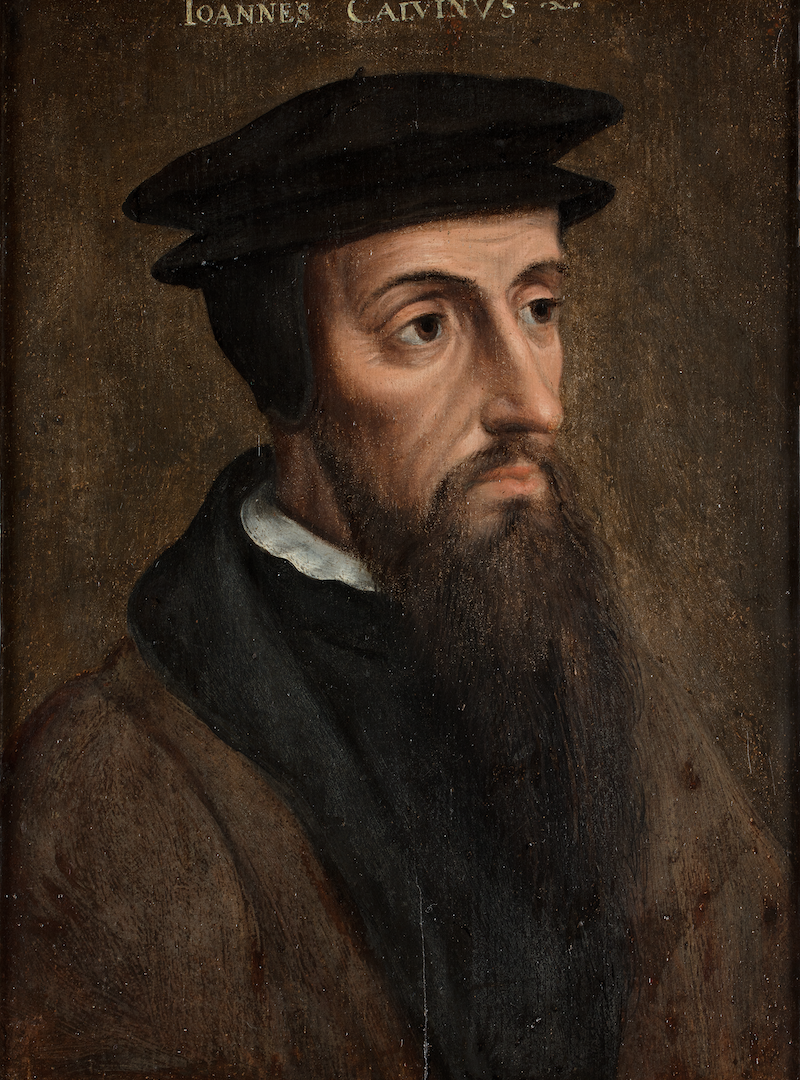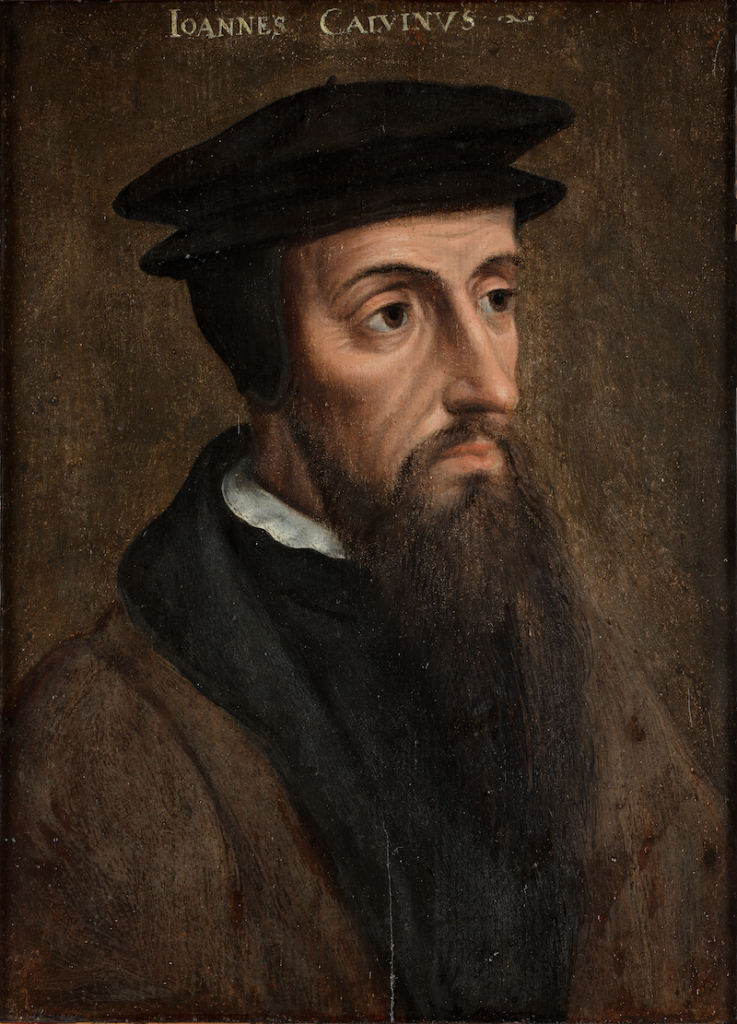What is Calvinism?
So the hot topic in the evangelical Protestant world right now is Calvinism. Well, here I’m going to describe what it is from the perspective of someone who was raised not knowing what it was, have ready from many of the proponents and opponents of it, and have come to embrace it as an amazingly comforting doctrine. This may get a bit basic but that hopefully makes for a good foundation.
What is Calvinism? No, this is not the religious following of a kid and his stuffed tiger. It’s a system of Christian beliefs based on the teachings of John Calvin (as well as the Bible itself – you can tell I’m biased). Typically, Reformed Theology (the theology of the Protestant Reformation – a more accurate name than Calvinism) is summarized with five points that form the acrostic TULIP. So we will go over the five points in that order.
- Total Depravity – this first point refers to the state of man after the fall of man (when Adam and Eve were expelled from the Garden of Eden in Genesis 3). Romans 3:10-12 says “as it is written: None is righteous, no, not one; no one understands; no one seeks for God. All have turned aside; together they have become worthless; no one does good, not even one.” Then Romans 3:23 summarizes with “for all have sinned and fall short of the glory of God.” Also, Isaiah 64:6 says “We have all become like one who is unclean, and all our righteous deeds are like a polluted garment. We all fade like a leaf, and our iniquities, like the wind, take us away.” And the best passage of all to summarized Total Depravity is Ephesians 2:1-10 – “And you were dead in the trespasses and sins in which you once walked, following the course of this world, following the prince of the power of the air, the spirit that is now at work in the sons of disobedience — among whom we all once lived in the passions of our flesh, carrying out the desires of the body and the mind, and were by nature children of wrath, like the rest of mankind. But God, being rich in mercy, because of the great love with which he loved us, even when we were dead in our trespasses, made us alive together with Christ — by grace you have been saved — and raised us up with him and seated us with him in the heavenly places in Christ Jesus, so that in the coming ages he might show the immeasurable riches of his grace in kindness toward us in Christ Jesus. For by grace you have been saved through faith. And this is not your own doing; cit is the gift of God, not a result of works, so that no one may boast. For we are his workmanship, created in Christ Jesus for good works, which God prepared beforehand, that we should walk in them.“
- Unconditional Election – this second point asserts that God saves whom He will and it salvation is monergistic – God the Holy Spirit saves people (as opposed to Synergistic – God the Holy Spirit and Man work together to bring about salvation). Ephesians 1:3-5 says “Blessed be the God and Father of our Lord Jesus Christ, who has blessed us in Christ with every spiritual blessing in the heavenly places, even as he chose us in him before the foundation of the world, that we should be holy and blameless before him. In love he predestined us for adoption as sons through Jesus Christ, according to the purpose of his will.” In Romans, Paul responds to the question of this being unjust, says this in Romans 9:14-18 “What shall we say then? wIs there injustice on God’s part? By no means! For he says to Moses, “I will have mercy on whom I have mercy, and I will have compassion on whom I have compassion.” So then it depends not on human will or exertion, but on God, who has mercy. For the Scripture says to Pharaoh, “For this very purpose I have raised you up, that I might show my power in you, and that my name might be proclaimed in all the earth.” So then he has mercy on whomever he wills, and he hardens whomever he wills.“
- Limited Atonement (aka Particular Redemption) – this third point specifies for whom Christ died. This is often delineated between grace that is sufficient vs efficacious. Christ’s sacrifice could be sufficient to cover the sins of all, but it is only efficacious for the sins of those He predestined. Acts 20:28 says “Pay careful attention to yourselves and to all the flock, in which the Holy Spirit has made you overseers, to care for the church of God, which he obtained with his own blood.” Jesus asserts that is His gift of eternal life is only for his sheep in John 10:24-30: “So the Jews gathered around him and said to him, “How long will you keep us in suspense? If you are the Christ, tell us plainly.” Jesus answered them, “I told you, and you do not believe. The works that I do in my Father’s name bear witness about me, but you do not believe because you are not among my sheep. My sheep hear my voice, and I know them, and they follow me. I give them eternal life, and they will never perish, and no one will snatch them out of my hand. My Father, who has given them to me, is greater than all, and no one is able to snatch them out of the Father’s hand. I and the Father are one.”“
- Irresistible Grace – this fourth point is the vital if the first two are true. If there is nothing good within man and only God chooses His elect, somehow they must become saved. This point refers to God the Holy Spirit regenerating man so he can then respond to the gospel in the way God desires. Without this step, man is just trying something in his own righteousness, which I would again refer back to Isaiah 64:6: “We have all become like one who is unclean, and all our righteous deeds are like a polluted garment. We all fade like a leaf, and our iniquities, like the wind, take us away.” Ephesians 2:13 says “for hit is God who works in you, both to will and to work for his good pleasure.” Also, John 1:12-13 shows whose will is was for some men to be born of God: “But to all who did receive him, who believed in his name, the gave the right to become children of God, who were born, not of blood nor of the will of the flesh nor of the will of man, but of God.“
- Perseverance of the Saints (aka Once Saved Always Saved) – this final point is the icing on the cake. Once God bring the dead back to life, He does not allow them to die again. Referring back to John 10:24-30, we see this: “So the Jews gathered around him and said to him, “How long will you keep us in suspense? If you are the Christ, tell us plainly.” Jesus answered them, “I told you, and you do not believe. The works that I do in my Father’s name bear witness about me, but you do not believe because you are not among my sheep. My sheep hear my voice, and I know them, and they follow me. I give them eternal life, and they will never perish, and no one will snatch them out of my hand. My Father, who has given them to me, is greater than all, and no one is able to snatch them out of the Father’s hand. I and the Father are one.”“
So those are the five points of Calvinism. In summary, man is evil from birth and nothing he can do can fix that. However, God in His infinite grace has chosen to save some, not on their own merit but because of His grace. There are only a limited number of people saved for at least two reasons – saving everyone would cheapen grace and more than that, God made this His plan and we as finite creatures cannot grasp His entire will. When God raises us from our spiritual death, we cannot help but respond, just as someone being shocked back to life with a defibrillator cannot help but have electricity course through their body. And finally, once God choses to save us and we have this amazing gift, nothing can steal us away from Him.

